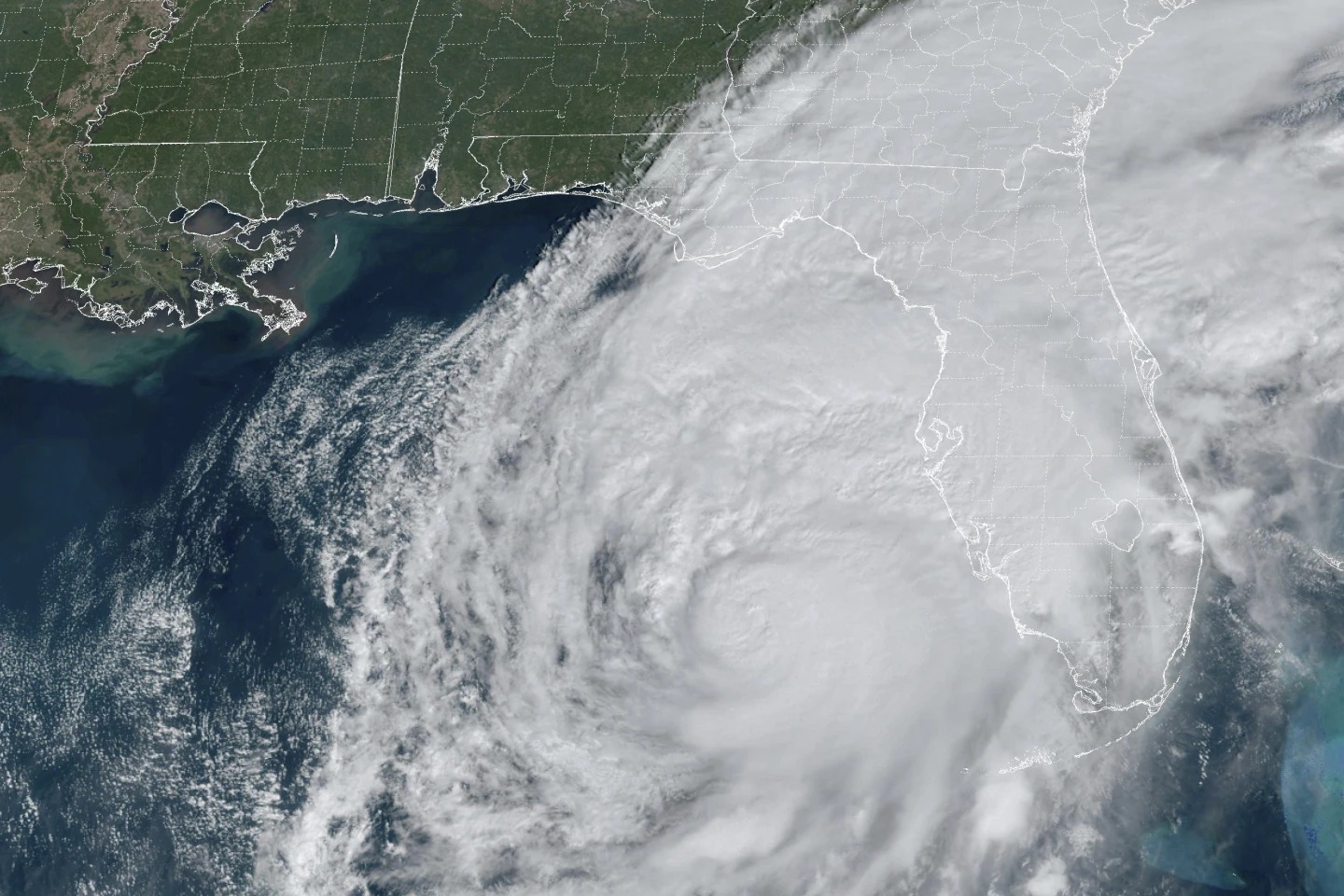Last Call – A prime-time read of what’s going down in Florida politics.
First Shot
Chief Financial Officer Jimmy Patronis announced legislation to enhance Florida’s resilience against hurricanes and severe weather.
The proposed legislation, SB 1466 and HB 851, will create the “My Safe Florida Home Trust Fund. ” This fund would allocate a slice of sales tax revenue to the My Safe Florida Home Program, which awards grants to help homeowners perform storm-hardening upgrades.
The My Safe Florida Home Program has been widely successful, allocating more than $576 million in home-hardening grants to more than 58,000 homeowners statewide.
The My Safe Florida Home Program has relied on money directly appropriated by the Legislature. Typically, the money dries up well before the end of the state fiscal year, and lawmakers have tacked on a mid-year refuel to Special Session legislation.
The 2025 bills, carried by Sen. Nick DiCeglie and Rep. Chip LaMarca, aim to make the program less reliant on legislative budgeteering by shipping 5% of sales tax dollars generated from hurricane-impacted counties to the new program-affiliated trust fund.
“Unfortunately, it’s not if but when another powerful storm will take aim at Florida. This legislation is a proactive step towards safeguarding our communities from hurricanes and keeping insurance costs in check. By creating the My Safe Florida Home Trust Fund, we not only funnel necessary funds into our local economies but also incentivize homeowners to fortify their residences, all while using unexpected revenue streams from the sales tax boosts we see following storms,” Patronis said in a news release.
“This is pain and suffering money and should be given back to Floridians to help in protecting their homes from future hurricanes. Strengthening our homes is essential for protecting families and reducing the financial burden following storms. Thank you to Sen. Nick DiCeglie and Rep. Chip LaMarca for sponsoring this legislation and working to help Floridians protect their biggest investment — their homes.”
Patronis also spotlighted legislation (SB 1468/HB 853) establishing a monthlong sales tax holiday for impact-resistant doors and windows in February.
Evening Reads
—”Donald Trump’s biggest power grab just reached the Supreme Court” via Ian Millhiser of Vox
—“A chat with Paul Krugman — and a few words about Trump” via Nate Silver of the Silver Bulletin
—”U.S. economy shows signs of strain from Trump’s tariffs and spending cuts” via Alan Rappeport of The New York Times
—“Trump administration sets the stage for large-scale federal worker layoffs in a new memo” via The Associated Press
—”She hoped Trump’s victory would change her life, but not like this” via Emily Davies of The Washington Post
—“‘A lot of possibilities,’ Ron DeSantis says when asked if First Lady will run for Governor” via Jay Waagmeester of the Florida Phoenix
—”New Florida DOGE proposal seeks to eliminate Lieutenant Governor” via Phil Ammann of Florida Politics
—”‘I’m very anxious right now’: Central Florida senior citizens struggle as housing, other costs outpace Social Security” via Michael Cuglietta of the Orlando Sentinel
—”Was Gene Hackman a great American actor — or the greatest American actor?” via Rob Sheffield of Rolling Stone
—“Mark Kaplan is stepping back from University of Florida” via Gabrielle Russon of Florida Politics
Quote of the Day
“Florida is not a place where you’re welcome with that type of conduct in the air, and I don’t know how it came to this.”
— Gov. Ron DeSantis, on Andrew and Tristan Tate’s arrival in Florida.
Put it on the Tab
Look to your left, then look to your right. If you see one of these people at your happy hour haunt, flag down the bartender and put one of these on your tab. Recipes included, just in case the Cocktail Codex fell into the well.
Serve DiCeglie and LaMarca a Batten Down the Hatches for carrying a DFS bill to strengthen the My Safe Florida Home Program.
The Tates should order one of these GTFO Winter Cocktails at the airport bar before taking the next flight out of Florida.
Raise an Orange & Blue Victorious to Mark Kaplan, who’s stepping back as UF’s Vice President of Government and Community Relations.

Breakthrough Insights

Tune In
Gators look to bounce back
With March Madness approaching, the Florida Gators will try to rebound from a loss for the first time in a month when they host Texas A&M on Saturday (8:30 p.m. ET, SEC Network).
Florida (24-4, 11-4 SEC) is ranked third in the nation but lost at Georgia on Tuesday, 88-83, snapping a six-game winning streak. With three games remaining in the regular season, the Gators’ chances to win the SEC regular season championship are slim.
Auburn sits atop the conference schedule with a record of 14-1, with Alabama in second (12-3). For Florida to win a share of the title, the Gators would have to win out, including beating Alabama on Wednesday. In addition, Alabama would have to lose at Tennessee on Saturday, then beat Auburn in the season’s final game. Auburn would have to lose to Kentucky on Saturday and Texas A&M on Tuesday in addition to losing to Alabama. In this scenario, Florida, Alabama, and Auburn would share the regular season title with matching records of 14-4 in conference play.
Texas A&M (20-8, 9-6) comes into Saturday’s game ranked #14 in the most recent Associated Press Top 25 poll. The Aggies have lost three consecutive games, falling to Mississippi State, Tennessee and Vanderbilt.
ESPN’s College Gameday will air live from Gainesville starting at 10 a.m. ET on Saturday. It is the first time the show has emanated from Gainesville since 2017.
___
Last Call is published by Peter Schorsch, assembled and edited by Phil Ammann and Drew Wilson, with contributions from the staff of Florida Politics.
Post Views: 0

 Entertainment8 years ago
Entertainment8 years ago
 Entertainment8 years ago
Entertainment8 years ago
 Politics8 years ago
Politics8 years ago
 Tech8 years ago
Tech8 years ago
 Tech8 years ago
Tech8 years ago
 Tech8 years ago
Tech8 years ago
 Entertainment8 years ago
Entertainment8 years ago
 Politics8 years ago
Politics8 years ago












